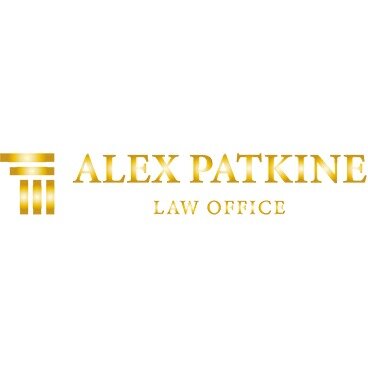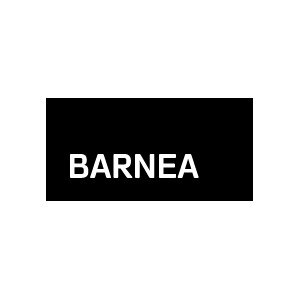Best Hiring & Firing Lawyers in Tel Aviv
Share your needs with us, get contacted by law firms.
Free. Takes 2 min.
List of the best lawyers in Tel Aviv, Israel
About Hiring & Firing Law in Tel Aviv, Israel
Hiring and firing laws in Tel Aviv, Israel, are designed to create a balanced work environment, protect employees' rights, and ensure fair treatment by employers. These laws cover various aspects, such as employee contracts, termination procedures, severance pay, notice periods, and non-discrimination in hiring and firing practices. Understanding these regulations is crucial for both employers and employees to maintain lawful and harmonious work relationships.
Why You May Need a Lawyer
Seeking legal advice in matters of hiring and firing can be essential for several reasons:
- To ensure compliance with local labor laws and avoid legal disputes.
- To navigate complex employment contracts and understand your rights and obligations.
- To address wrongful termination claims or disputes regarding severance pay.
- To handle issues related to workplace discrimination, harassment, or retaliation.
- To provide guidance on proper procedures for hiring, including screening and contracts.
- To represent you in negotiations or litigations with employers or employees.
Local Laws Overview
In Tel Aviv, Israel, several key laws govern hiring and firing practices:
- Labor Law: This comprehensive law covers various employee rights, including wages, working hours, and conditions of employment.
- Termination Law: Specifies the lawful procedures for terminating an employee, including notice periods and severance pay.
- Equal Employment Opportunity Law: Prohibits discrimination based on gender, age, race, religion, and other protected characteristics during hiring and firing.
- Collective Labor Agreements: These agreements between employers and employee unions can affect hiring and firing practices, including wages and working conditions.
Frequently Asked Questions
What are the legal notice periods for termination?
The notice period varies based on the employee's duration of employment. Typically, it ranges from one day for the first six months to one month for employment lasting more than a year.
What constitutes wrongful termination in Israel?
Wrongful termination includes firing based on discrimination, without just cause, or without providing the required notice or severance pay.
Are employers required to provide severance pay?
Yes, employees with at least one year of continuous employment are generally entitled to severance pay upon termination, except in cases of gross misconduct.
Can an employee be fired during maternity leave?
No, Israeli law protects employees from being terminated during maternity leave and for a certain period following their return to work.
What rights do employees have regarding contracts?
Employees are entitled to a written contract outlining the terms of employment, including job duties, salary, and working hours. Changes to these terms require mutual consent.
Is it legal to terminate an employee without reason?
Employers must provide a legitimate reason for termination and follow proper procedures, including notice periods and, if applicable, severance pay.
What remedies are available for wrongful termination?
Remedies can include reinstatement, compensation for lost wages, and damages for emotional distress or discrimination. Legal advice can help determine the best course of action.
How can an employer ensure compliance with hiring laws?
Employers should familiarize themselves with labor laws, create fair and non-discriminatory hiring practices, and consult with a legal advisor to ensure compliance.
Are probation periods mandatory in Israel?
While not mandatory, probation periods are common and typically last up to six months. Terms must be clearly outlined in the employment contract.
What should an employee do if they face discrimination?
Employees facing discrimination should document the incidents, report them to their employer or HR department, and seek legal advice if necessary.
Additional Resources
For more information and assistance, consider reaching out to the following:
- Ministry of Labor, Social Affairs and Social Services: Provides resources and information on labor laws and employee rights.
- Histadrut (General Organization of Workers in Israel): Offers support and guidance for employees, including legal assistance.
- Israel Bar Association: Can help you find a qualified labor lawyer in Tel Aviv.
- Equal Employment Opportunity Commission: Handles discrimination complaints and provides relevant resources.
Next Steps
If you need legal assistance regarding hiring and firing practices, consider taking the following steps:
- Document all relevant information and incidents related to your case.
- Consult with a legal advisor or labor lawyer to discuss your situation and understand your rights.
- Gather any employment contracts, communication records, and other relevant documents.
- Contact relevant governmental bodies or organizations for additional support and information.
- Prepare for potential mediation or litigation, if necessary, with your lawyer's guidance.
Understanding and navigating the complexities of hiring and firing laws in Tel Aviv can be challenging, but with the right legal help, you can ensure your rights are protected and achieve a fair outcome.
Lawzana helps you find the best lawyers and law firms in Tel Aviv through a curated and pre-screened list of qualified legal professionals. Our platform offers rankings and detailed profiles of attorneys and law firms, allowing you to compare based on practice areas, including Hiring & Firing, experience, and client feedback.
Each profile includes a description of the firm's areas of practice, client reviews, team members and partners, year of establishment, spoken languages, office locations, contact information, social media presence, and any published articles or resources. Most firms on our platform speak English and are experienced in both local and international legal matters.
Get a quote from top-rated law firms in Tel Aviv, Israel — quickly, securely, and without unnecessary hassle.
Disclaimer:
The information provided on this page is for general informational purposes only and does not constitute legal advice. While we strive to ensure the accuracy and relevance of the content, legal information may change over time, and interpretations of the law can vary. You should always consult with a qualified legal professional for advice specific to your situation.
We disclaim all liability for actions taken or not taken based on the content of this page. If you believe any information is incorrect or outdated, please contact us, and we will review and update it where appropriate.
















